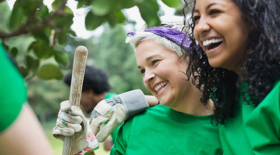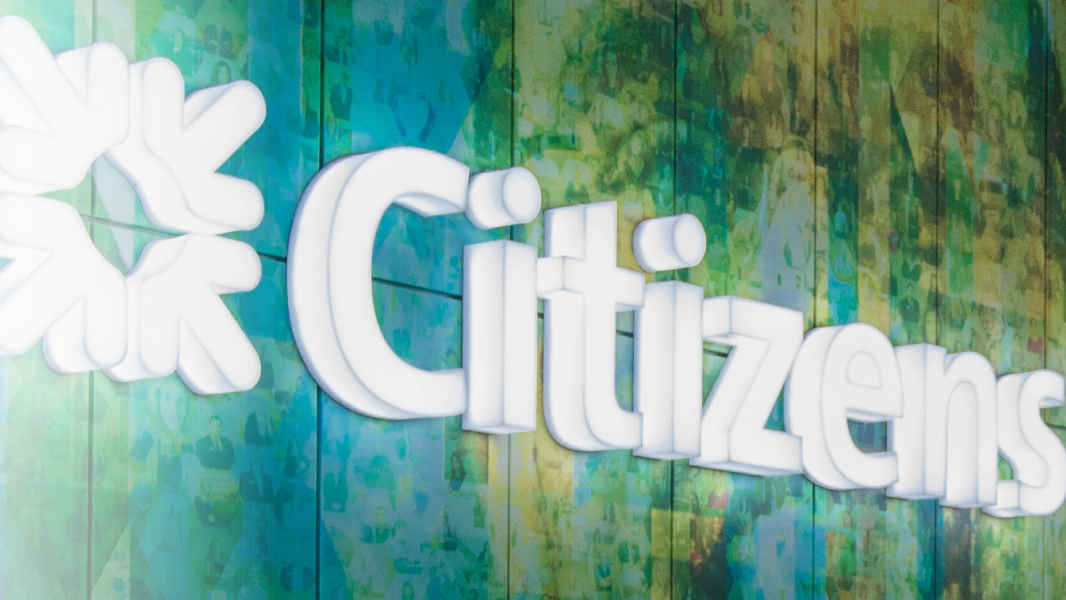Women and philanthropy: How to effectively leverage your financial power

Key takeaways
- The Great Wealth Transfer will result in the inheritance of assets valued in the trillions, presenting an unprecedented opportunity for heirs, specifically women, to make an impact.
- Understanding how to best make an impact with your wealth requires careful research, reflection on personal values, and guidance from a trusted source.
- Collective giving and legacy planning offer powerful avenues for women to support causes and drive change for future generations.
The Great Wealth Transfer — an unprecedented shift of $124 trillion in assets as baby boomers age into their 80s — is set to unfold over the next two decades, with women alone inheriting a significant portion. Women are already acquiring this wealth: A recent Citizens survey* found that 44% of women have received or expect to receive an inheritance of at least $100,000.
As this wealth transfer unfolds, women's engagement in financial discussions is experiencing a generational shift. While many across generations prefer to listen in, younger women are more likely to actively participate, with 49% of millennials and 41% of Gen Z joining conversations, compared to just 25% of boomers.
"When I was younger, it was challenging for women to talk about money and be comfortable with those conversations," says Andrea Martinez Frey, MPH, Senior Vice President and Director of Strategic Community Partnerships and Engagement at Citizens. "Now we can discuss: What can I do with my money? How can I make an impact?"
As women continue to gain control over inherited wealth, their confidence and involvement position them as a powerful force in philanthropy. How can women best leverage this financial power to create lasting social and economic change?
The power of women's philanthropy
Women's philanthropy has the power to strengthen communities, expand opportunities and influence policy. Historically, women have leveraged philanthropy to create social change, from funding movements to expanding access to higher education. As women inherit and manage more wealth, their ability to influence society through charitable giving will only grow.
Women are also more likely to spread their donations across multiple causes, prioritizing essential human services such as food security, housing and counseling. By funding these critical resources, women can help build stronger, more inclusive and resilient communities, fostering economic stability and upward mobility.
How to determine the charitable impact you want to make
With financial power comes the ability to invest in causes that align with personal values and drive meaningful change. But with so many pressing needs, where should women begin? If you want to make a difference, the first steps are thoughtful research and reflection to ensure that philanthropy is both intentional and impactful.
Step 1: Research
Start by identifying the issues that matter most to you and exploring meaningful ways to contribute. Consider different approaches to supporting your community — whether through charitable giving, volunteer work or advocacy.
"Philanthropy is an art, not a science," Martinez Frey says. "Understanding the needs and landscape of the community is really important because if you want to take action, you have to understand the people who are living and breathing it."
Having conversations with trusted advisors, loved ones and nonprofit leaders can provide valuable insight into where your contributions can make the biggest difference. Engage with organizations that are already working to address the issues that are important to you and take the time to listen. Understanding their challenges and goals will help you determine how best to support them.
Step 2: Reflection
Once you've gathered information, take a step back to reflect on what truly drives you. Ask yourself: What are my passions? Who do I want to help? What kind of change do I hope to see in the world?
Philanthropy isn't just about making a difference today — it's about shaping the future. Consider the long-term impact of your giving and how it fits into your overall financial and estate planning. Legacy giving allows you to ensure that your wealth continues to support the causes you care about for generations to come, leaving behind a lasting mark on the world.
Step 3: Engage with your community
Once you're a bit more informed about the impact you want to make, find the organizations and communities that you want to support. Start by tapping into your existing network or seeking out other groups. Martinez Frey recommends giving circles to pool resources together to create a greater impact.
"Giving circles, where a group of like-minded people come together to donate, are not new by any means, but they're highly effective," Martinez Frey explains. "Instead of someone taking their resources and doing a one-off donation, it's deciding as a group what organizations to support and furthering the impact together."
Explore other ways to make an impact
Effecting change doesn't necessarily have to involve donating money; it can also be finding other ways to strengthen your community. While older generations of women are more likely to incorporate charitable giving into their estate plans, younger women have the chance to redefine what legacy means — whether by starting foundations, engaging in impact investing or mentoring the next generation of female philanthropists.
If you're still stuck on how your money and resources can best be utilized to impact and help your community, you can seek help from financial professionals.
"Finding a trusted advisor where you feel comfortable having a conversation about what you can do to impact the future and your communities is great for women who want to learn how to leverage their financial power," Martinez Frey says.
Citizens supports all our communities
"Economic inclusion is not just for one person. It's for everybody. How can we provide that support and teach not only young kids but older generations about how to best utilize their resources?" Martinez Frey asks.
Citizens strives to be a trusted advisor and an advocate for inclusion for all generations in the communities where we work and live. One example of this is our colleague engagement program. All colleagues are matched with opportunities to give back that support their values and passions.
As Martinez Frey notes, "When I think about the work that Citizens does in terms of how we provide financial literacy to people of all ages, everyone should be included and everyone should understand how money works, how to invest it and how to budget it."
Related topics

Fostering strong communities
We work to strengthen the communities where we live and work.

Creating a culture of inclusion
Learn about our commitment to inclusion for our colleagues, customers and communities.

Promoting sustainability & impact
Our commitment to continual progress is woven into the fabric of our business, as we work to create a thriving, sustainable, inclusive future for all.
© Citizens Financial Group, Inc. All rights reserved. Citizens Bank, N.A. Member FDIC
* Methodology: The Citizens Great Wealth Transfer Survey was conducted by Wakefield Research among 1,500 nationally representative U.S. adults, with oversamples for 100 in both high-net-worth and ultra-high-net-worth individuals and affluent adults, from Jan. 22 to Feb. 3, 2025, using an email invitation and an online survey. Data has been weighted.
Disclaimer: The information contained herein is for informational purposes only as a service to the public and is not legal advice or a substitute for legal counsel. You should do your own research and/or contact your own legal or tax advisor for assistance with questions you may have on the information contained herein.
